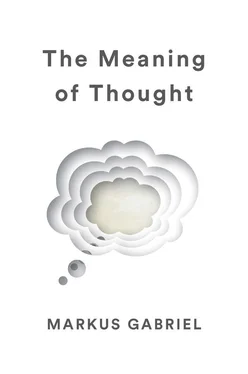82 70
83 71
84 72
85 73
86 74
87 75
88 76
89 77
90 78
91 79
92 80
93 81
94 82
95 83
96 84
97 85
98 86
99 87
100 88
101 89
102 90
103 91
104 92
105 93
106 94
107 95
108 96
109 97
110 98
111 99
112 100
113 101
114 102
115 103
116 104
117 105
118 106
119 107
120 108
121 109
122 110
123 111
124 112
125 113
126 114
127 115
128 116
129 117
130 118
131 119
132 120
133 121
134 122
135 123
136 124
137 125
138 126
139 127
140 128
141 129
142 130
143 131
144 132
145 133
146 134
147 135
148 136
149 137
150 138
151 139
152 140
153 141
154 142
155 143
156 144
157 145
158 146
159 147
160 148
161 149
162 150
163 151
164 152
165 153
166 154
167 155
168 156
169 157
170 158
171 159
172 160
173 161
174 162
175 163
176 164
177 165
178 166
179 167
180 168
181 169
182 170
183 171
184 172
185 173
186 174
187 175
188 176
189 177
190 178
191 179
192 180
193 181
194 182
195 183
196 184
197 185
198 186
199 187
200 188
201 189
202 190
203 191
204 192
205 193
206 194
207 195
208 196
209 197
210 198
211 199
212 200
213 201
214 202
215 203
216 204
217 205
218 206
219 207
220 208
221 209
222 210
223 211
224 212
225 213
226 214
227 215
228 216
229 217
230 218
231 219
232 220
233 221
234 222
235 223
236 224
237 225
238 226
239 227
240 228
241 229
242 230
243 231
244 232
245 233
246 234
247 235
248 236
249 237
250 238
251 239
252 240
253 241
254 242
255 243
256 244
257 245
258 246
259 247
260 248
261 249
262 250
263 251
264 269
265 270
266 271
267 272
268 273
269 274
270 275
271 276
272 277
273 278
274 279
275 280
For Leona Maya
Markus Gabriel
Translated by Alex Englander and Markus Gabriel
polity
Originally published in German as Der Sinn des Denkens © Ullstein Buchverlage GmbH, Berlin. Published in 2018 by Ullstein Verlag
This English edition © 2020 by Polity Press
The translation of this work was funded by Geisteswissenschaften International – Translation Funding for Humanities and Social Sciences from Germany, a joint initiative of the Fritz Thyssen Foundation, the German Federal Foreign Office, the collecting society VG WORT and the Börsenverein des Deutschen Buchhandels (German Publishers & Booksellers Association)
Excerpt from: Durs Grünbein, Zündkerzen. Gedichte. © Suhrkamp Verlag Berlin 2017.
Polity Press
65 Bridge Street
Cambridge CB2 1UR, UK
Polity Press
101 Station Landing
Suite 300
Medford, MA 02155, USA
All rights reserved. Except for the quotation of short passages for the purpose of criticism and review, no part of this publication may be reproduced, stored in a retrieval system or transmitted, in any form or by any means, electronic, mechanical, photocopying, recording or otherwise, without the prior permission of the publisher.
ISBN-13: 978-1-5095-3837-9
A catalogue record for this book is available from the British Library.
The publisher has used its best endeavours to ensure that the URLs for external websites referred to in this book are correct and active at the time of going to press. However, the publisher has no responsibility for the websites and can make no guarantee that a site will remain live or that the content is or will remain appropriate.
Every effort has been made to trace all copyright holders, but if any have been overlooked the publisher will be pleased to include any necessary credits in any subsequent reprint or edition.
For further information on Polity, visit our website: politybooks.com
Technology, the little titanic mistake, is Nothing that saves humanity from itself
Durs Grünbein
This book was made possible through the support of a number of people and institutions, to all of which I owe a debt of gratitude. First and foremost, I would like to thank the Alexander von Humboldt Stiftung and the Université Paris 1 Panthéon-Sorbonne. I completed the manuscript while I was guest professor at the Sorbonne, which was enabled by a Feodor Lynen fellowship for experienced researchers. The research project that led to The Meaning of Thought is concerned with fictional objects – that is, with the question of the extent to which those objects that we imagine and tell stories about really exist. Answering this question means further elaborating the framework of New Realism, in which, as I’ve made clear elsewhere, fictional objects are quite welcome, just like unicorns. I would also like to thank my own university, the University of Bonn, for granting me a generous period of leave so that I could take up the research grant in Paris.
In this connection, thanks are due to the CNRS, to the president of the University of Paris 1, Professor Georges Haddad, and to the rector of the University of Bonn, Prof. Dr. Dr. h.c. Michael Hoch for their support in founding a new research centre on New Realism (Centre de Recherches sur les Nouveaux Réalismes, CRNR), funded by the CNRS and partner universities. A key focus of this centre is the prospects for a realist philosophy of perception, a topic I have had the pleasure of being able to pursue with the philosophers Jocelyn Benoist and Quentin Meillassoux. Considerable thanks are due to Jocelyn Benoist in particular, to whom I owe the inspiration for trying to overcome the subject–object split already at the level of perception, so as to arrive at a realist understanding of the sensible. Benoist’s own recent work constitutes one of the most important contributions to this goal.
I would also like to thank the senate of the Republic of Chile for the invitation to their Congresso Futuro. It was at this event that I had the opportunity to get to know Giulio Tononi, whose non-reductionist, realist theory of consciousness gets us beyond the subject–object dichotomy on the terrain of neuroscientific research. Unfortunately, I had completed the manuscript of the book before I was able to visit Tononi’s lab in Madison, Wisconsin, in May 2018, which meant that the fruits of our conversations did not find their way into the book.
Thanks are also due to my colleagues at the Center for Science and Thought (CST) at the University of Bonn and at the International Center for Philosophy NRW for many days of conversation about the topics of the book. Ulf-G. Meissner, Michael N. Forster and Jens Rometsch deserve particular mention: for many months, I have had the pleasure of discussing with them which form should be taken by a realist theory of perception and thought. In addition, I had the opportunity to run an immensely stimulating seminar in Bonn together with Jocelyn Benoist and Charles Travis on the manuscript of Charles’s new work on Frege, in which he defends the existence of an ‘ invisible realm ’ against the error of a linguistic reading of the reality of thought. One day, I might reveal to Charles that behind Frege stands the good old project of an ‘invisible church’, 1which is called German idealism.
Читать дальше










